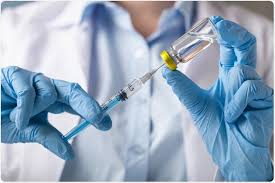
WHO Grants Emergency Use Listing for LC16m8 Vaccine to Combat Global Mpox Outbreaks
In a decisive move to strengthen the global response to the escalating mpox outbreaks, the World Health Organization (WHO) has granted Emergency Use Listing (EUL) for the LC16m8 mpox vaccine. This marks the second vaccine endorsed by the WHO since the Director-General declared mpox a public health emergency of international concern (PHEIC) on August 14, 2024.
The EUL approval is expected to significantly enhance access to vaccines in communities battling surging mpox cases. As of October 31, 2024, mpox cases have been reported in 80 countries, including 19 in Africa. Among these, the Democratic Republic of the Congo (DRC) has been hit the hardest, reporting over 39,000 suspected cases and more than 1,000 fatalities.
Adding momentum to the global response, Japan has announced a donation of 3.05 million doses of the LC16m8 vaccine to the DRC, along with specialized inoculation needles. This donation is the largest package provided in response to the ongoing mpox emergency, underscoring Japan’s commitment to combating the crisis.
About the LC16m8 Vaccine
The LC16m8 vaccine, developed and manufactured by KM Biologics in Japan, has been evaluated for safety and efficacy through rigorous reviews by WHO’s Technical Advisory Group (TAG) and the Japanese Pharmaceuticals and Medical Devices Agency (PMDA). Recommended as a single-dose vaccine for individuals over the age of one, it is administered using a bifurcated needle via a multiple puncture technique.
Dr. Yukiko Nakatani, WHO Assistant Director-General for Access to Medicines and Health Products, described the development as pivotal, stating:
“WHO’s emergency use listing of the LC16m8 vaccine against mpox marks a significant step in our response to the current emergency, providing a new option to protect all populations, including children. Vaccines are an essential tool in a comprehensive response strategy, which also includes testing, treatment, infection prevention, and community engagement.”
The LC16m8 vaccine has a proven track record, having been safely used during previous mpox outbreaks in Japan, including among individuals with well-controlled HIV. The WHO Strategic Advisory Group of Experts (SAGE) on Immunization has recommended its use in outbreak settings, particularly for children and high-risk populations.
Safety Guidelines and Limitations
While the vaccine offers broad protection, it is not recommended for pregnant individuals or those with compromised immune systems. This includes patients with active cancer, transplant recipients, those undergoing immunosuppressive therapy, and people living with HIV with a CD4 count below 200 cells/μl.
The Global Advisory Committee on Vaccine Safety has stressed the importance of training healthcare workers on the use of bifurcated needles to minimize injuries and adverse effects. The committee has also emphasized the need for ongoing data collection to monitor vaccine safety and effectiveness, particularly in light of evolving virus strains.
WHO’s Broader Vaccination Efforts
WHO has been actively collaborating with manufacturers, global partners, and countries to ensure the availability of life-saving vaccines. Alongside the LC16m8 vaccine, WHO prequalified the Modified Vaccinia Ankara-Bavarian Nordic (MVA-BN) vaccine on September 13, 2024, expanding its use to individuals aged 12 and older on October 8, 2024.
As the global mpox outbreak continues to evolve, WHO’s efforts to expand vaccine access and strengthen public health responses highlight the organization’s unwavering commitment to safeguarding communities worldwide.